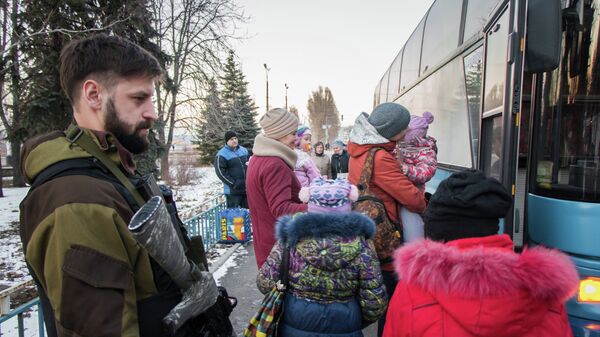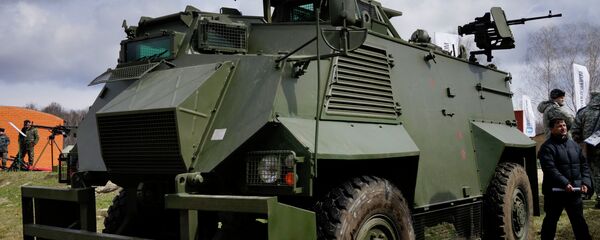Speaking to Radio Vesti, Sergei Shakhov, a refugee from the Lugansk region and volunteer assisting the internally displaced persons organization Narodna Dovira ('People's Trust') noted that the bribe refugees and their relatives have to pay has reached "2,000 hryvnia." Moreover, Shakhov noted that people crossing the border face constant rudeness from border guards, while technical and other problems result in hundreds of people and vehicles queuing up at the checkpoints for hours at a time.
Last month, a new system of electronic passes was supposed to go into effect at checkpoints around Ukraine's eastern conflict zone. Speaking to Oksana Ermishina, the Chairwoman of the Public Committee for Internally Displaced Persons, Kiev's Voice of the Capital radio station noted that this plan has thus far failed to make a dent in combatting payoffs, with problems in electricity supply, communications, and the electronic badge databases themselves only exacerbating difficulties. Ermishina noted that in a situation of organizational chaos where nothing works as it should, "money talks, and until a clear system of automated procedures exists, corruption will only continue."
Loud scandals have also been exploding in Ukrainian media over payoffs to officers in charge of determining fitness for mobilization into the armed forces, with families paying bribes of thousands of dollars or euros to prevent their sons from being conscripted.
The scandals plaguing the country's security and defense organs comes amidst claims by Ukrainian President Petro Poroshenko earlier this week that levels of corruption in the Ukrainian military have fallen dramatically. Speaking about the joint Ukrainian-US training exercises taking place in the western region of Lviv, Poroshenko noted that "in these six months we have proved that we have changed the military, with the help of volunteers and due to decisive actions by new officials at the Ministry of Defense and the Ukrainian General Staff."





